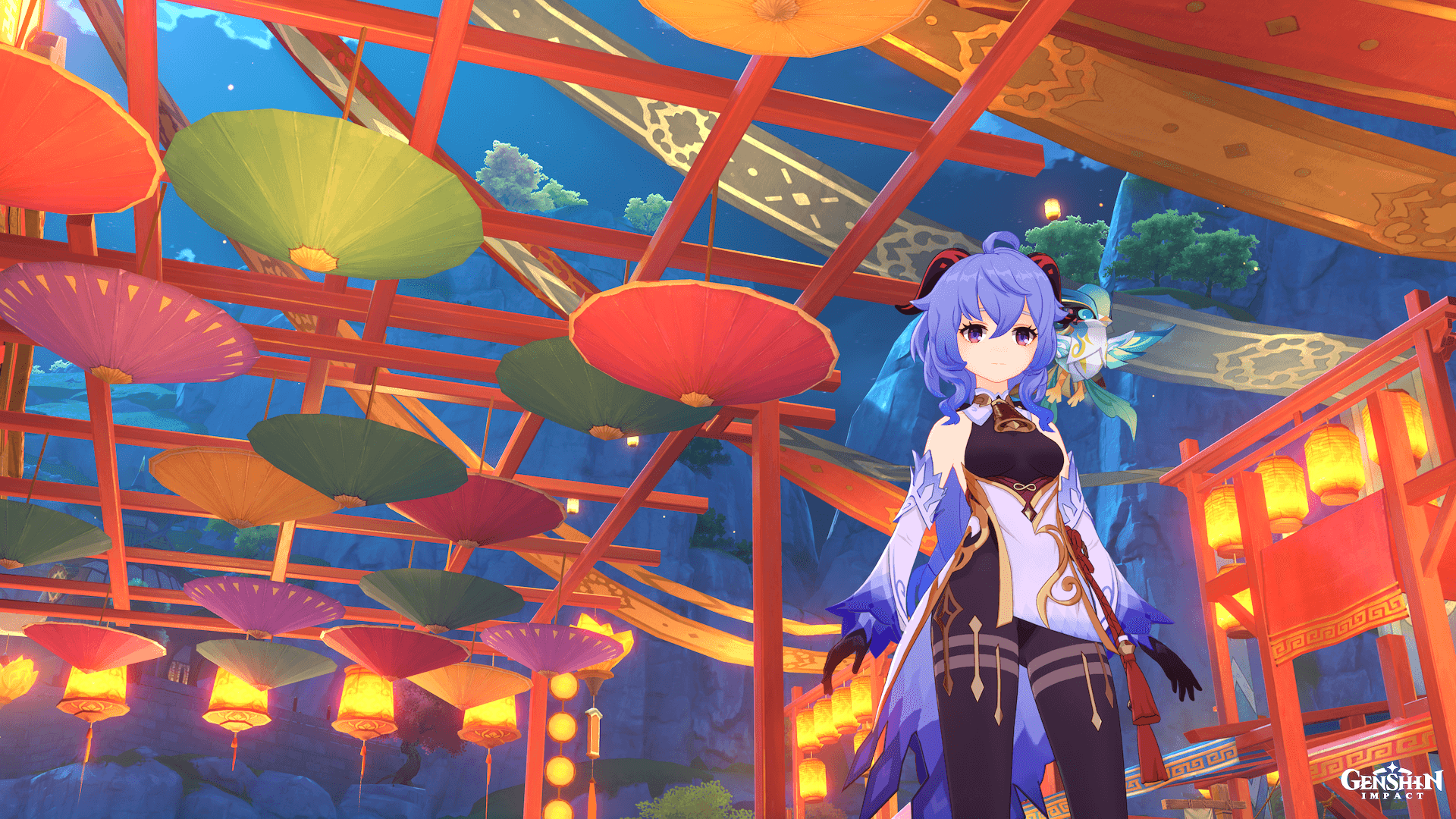
Every year, I look forward to celebrating the Lantern Rite Festival, a fictional holiday in the world of Genshin Impact based on Lunar New Year. Despite the fact that I don’t play this game regularly anymore, Lantern Rite remains one of my favorite holiday traditions to celebrate. When I logged into the game, it had been nearly a year since the last time I walked around Liyue Harbor, an in-game city inspired by China (and likely modeled after parts of Hunan Province). Yet, it felt just like visiting somewhere I used to live; recognizing streets I used to frequent, and taking comfort in the idea that life has gone on without me for everyone there.
Why does Lantern Rite mean so much to me? I started playing Genshin Impact around its launch in September 2020. Back then, a lack of information meant that many had hoped quarantine would only last a few months, and I was coming to terms with how wrong that expectation was, and how little I knew about the future. I also wasn’t going anywhere, and spent a lot of time walking around the landscape of Teyvat, Genshin Impact’s fictional world.
That’s why, when the first iteration of Lantern Rite Festival happened in February 2021, a lot of feelings surfaced for me. Growing up, I had relied on my parents to know how to celebrate Lunar New Year. Later, I found new ways to celebrate with friends. But in 2021, I was away from my family and friends for an indefinite amount of time. I didn’t feel like I was in the right headspace to celebrate anything, and felt unmoored from tradition.
Playing through that year’s Festival event, I recognized my feelings in the characters and story. We meet Xiao, who is a protector spirit of sorts who watches over Liyue Harbor. A hero from days past, he feels both connected to and apart from the people he serves. As we explore the city, we learn that for the people of Liyue, the meaning of the “Xiao Lanterns” they light is to serve as a beacon, guiding bygone heroes back to their homeland. Though Xiao feels like his apartness from the people he loves is insurmountable, we persistently try to convince him to celebrate with us. Eventually, we bring the celebration to him, sharing a quiet meal on the outskirts of town.

In subsequent years, with each Lantern Rite Festival comes new characters and new stories of people finding their way back home. Last year, I returned to Liyue to learn that the theme of the year’s Lantern Rite was kites. In the story, we meet Gaming—a young man who has a strained relationship with his father. Gaming dreams of becoming a Wushou dancer, but his father wants him to run the family tea business instead, causing Gaming to leave home. As we work to help the father and son reconcile, the father comes to see that raising a child is not unlike flying a kite—hold the string too tight, and it can no longer soar. The story ends with a touching reconciliation, as the father accepts his son’s dreams.
At its heart, the story of Lantern Rite—and the wider story of Genshin Impact—is a story about reconciliation. In Genshin Impact, you play as the Traveler. Alongside their sibling, they journeyed across worlds until one day they were stranded in Teyvat. Separated from their sibling, they live in exile and dream of the day of their reunion. But as they search across the land for their lost family, they forge new relationships, find new people and places amongst which they feel at home, and make new treasured memories.
In the Traveler’s story, I see something essential about the Asian American experience. Sociologist Russell Jeung writes that alongside African American theologies of liberation and Latinx theologies of the borderlands, Asian Americans have a theology of exile due to our status as forever foreigners wherever we are. Asian American theology acknowledges the difficulties of existing within inhospitable conditions and longing for home and belonging. It also embraces the possibility of becoming rooted in community, investing in relationships, and cultivating mutual commitments of care.
We yearn to find our way back home. But along the way, home might just find us where we already are.